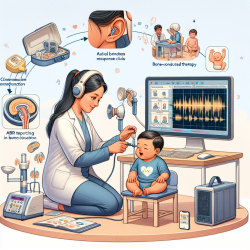Introduction: Navigating the Complexities of Student Support
In the dynamic environment of educational institutions, school counselors often find themselves feeling lost amidst the myriad of responsibilities. From addressing the emotional needs of students to coordinating with teachers and parents, the role of a school counselor is pivotal yet challenging. This blog explores how data-driven online therapy services can be a beacon of support for school counselors, enhancing their ability to foster positive outcomes for kids.
The Power of Data in Online Therapy
Data-driven decisions have revolutionized various sectors, and education is no exception. By leveraging data analytics, online therapy services can provide tailored interventions that are both effective and efficient. Here's how:
- Personalized Interventions: Data allows therapists to understand the unique needs of each child, creating customized therapy plans that address specific challenges.
- Progress Tracking: Regular data collection enables continuous monitoring of a child's progress, allowing for timely adjustments to therapy plans.
- Outcome Measurement: Quantitative data provides clear insights into the effectiveness of therapy, ensuring accountability and continuous improvement.
Online Therapy: A Strategic Partner for School Counselors
Online therapy services, such as those provided by TinyEYE, are strategically positioned to complement the efforts of school counselors. By integrating technology with therapeutic practices, these services offer several advantages:
- Accessibility: Online platforms break geographical barriers, making therapy accessible to students regardless of location.
- Flexibility: Scheduling sessions online offers flexibility, accommodating the busy timetables of both students and counselors.
- Resource Efficiency: By utilizing online therapy, schools can optimize their resources, directing them where they are most needed.
Case Study: Success Through Online Therapy
Consider the case of a school that implemented TinyEYE's online therapy services. By utilizing data-driven insights, the school was able to identify students who needed additional support and tailor interventions accordingly. Over a semester, there was a noticeable improvement in both academic performance and emotional well-being among participating students. This case highlights the transformative potential of integrating data-driven online therapy into the school environment.
Conclusion: A Collaborative Path Forward
For school counselors feeling overwhelmed by their responsibilities, embracing online therapy services can be a game-changer. By harnessing the power of data, counselors can ensure that their interventions are not only informed but also impactful. Together, we can create a supportive educational environment where every child has the opportunity to thrive.










